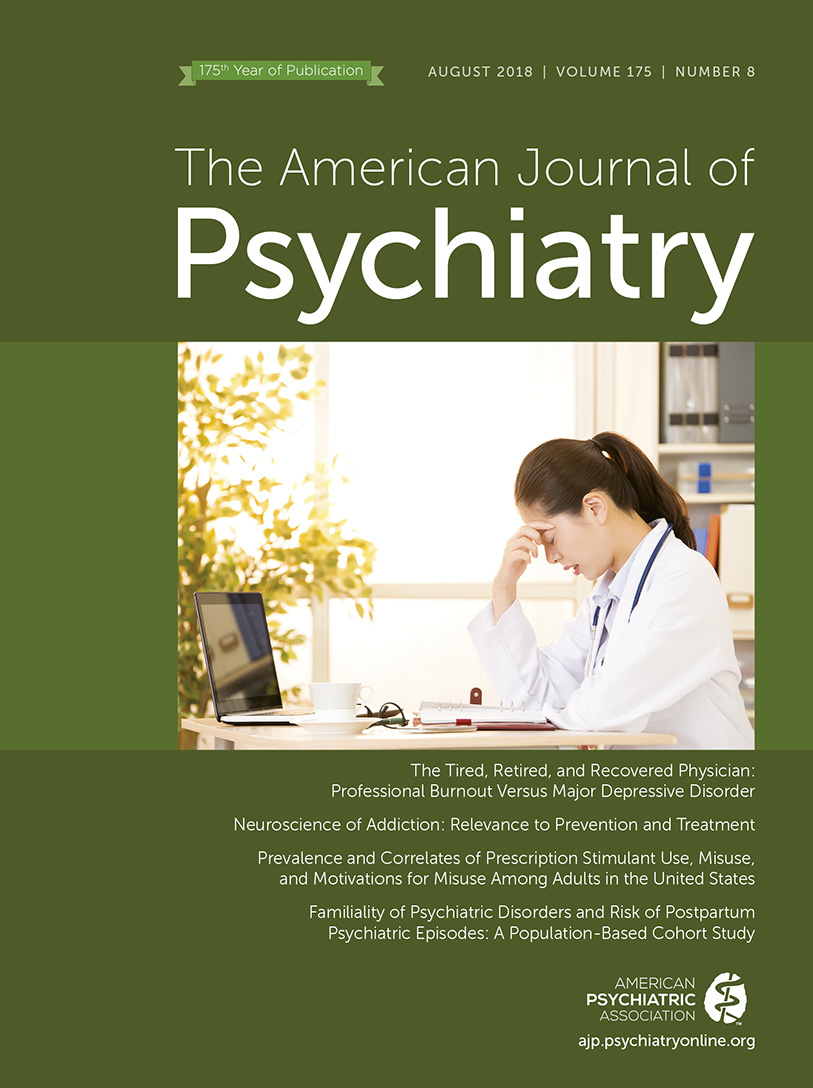Addressing Possible Effects of Sleep Apnea in a Study of Methylphenidate for Apathy in Alzheimer’s Disease: Response to Kolla and Mansukhani
To the Editor: We thank Drs. Kolla and Mansukhani for their commentary on our study finding that methylphenidate improves apathy in patients with Alzheimer’s disease (1). The authors suggest that methylphenidate may be improving symptoms (e.g., daytime sleepiness and inattention) of obstructive sleep apnea, which presented as apathy. We agree on three points: obstructive sleep apnea is a common comorbidity in older patient populations, elevated body mass index is a risk factor for obstructive sleep apnea and apathy (2), and methylphenidate improves key symptoms of obstructive sleep apnea (3). However, while interactions between obstructive sleep apnea, apathy, and methylphenidate are plausible, it is unlikely the case in the patients we studied.
Apathy diagnosis is based on careful screening for contributions from all comorbidities, including obstructive sleep apnea. Daytime sleepiness was not common in these patients at baseline or during intervention. The patients possessed apathy syndrome rather than simply a symptom of apathy. Apathy syndrome has cognitive, affective, and behavioral dimensions that persist longer than 4 weeks and cause significant impairment in personal, social, occupational, and other key areas of functioning (4). Motivation and goal-directed behaviors and cognitive activity are lost, and emotional blunting is found in patients with apathy (5). Daytime sleepiness and inattention are not symptoms of apathy syndrome. In fact, when diagnosing apathy syndrome during cognitive impairment, depression and other medical conditions are ruled out (4, 5).
The authors provide an important reminder that obstructive sleep apnea can be mistaken as apathy, and vice versa, in cognitively impaired older adults. Obviously, incorrect diagnosis could render treatment of either problem and of cognitive impairment less effective and could render the testing of new treatments uninterpretable. We feel strongly that management of apathy is essential to individual health. For example, preliminary studies have shown that resolution of apathy leads to improved functioning and self-care and has the potential to improve distal outcomes for comorbidities such as diabetes (6). Thus, future research into the ability for treatment of apathy and obstructive sleep apnea to empower individuals to optimally self-manage cognitive decline and other health conditions during aging will be exciting and has potential for great impact.
1 : Methylphenidate for apathy in community-dwelling older veterans with mild Alzheimer’s disease: a double-blind, randomized, placebo-controlled trial. Am J Psychiatry 2018; 175:159–168Link, Google Scholar
2 : The impact of apathy on glycemic control in diabetes: a cross-sectional study. Diabetes Res Clin Pract 2008; 79:37–41Crossref, Medline, Google Scholar
3 : Effect of methylphenidate on attention in apathetic AD patients in a randomized, placebo-controlled trial. Int Psychogeriatr 2014; 26:239–246Crossref, Medline, Google Scholar
4 : Apathy: a neuropsychiatric syndrome. J Neuropsychiatry Clin Neurosci 1991; 3:243–254Crossref, Medline, Google Scholar
5 : Proposed diagnostic criteria for apathy in Alzheimer’s disease and other neuropsychiatric disorders. Eur Psychiatry 2009; 24:98–104Crossref, Medline, Google Scholar
6 : Improvement of glycemic control using methylphenidate treatment of apathy: a preliminary report. J Am Geriatr Soc 2012; 60:1383–1384Crossref, Medline, Google Scholar



